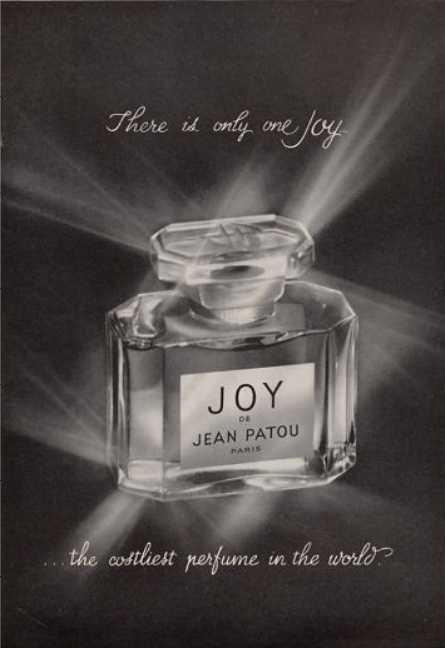Best Unique-Smelling Perfumes for a Unique You on Days Like Valentine's Day: Part 1 {Scented Thoughts} {Perfume List}

As announced previously last month, here is my follow-up article on the idea of turning to "Perfumes That Smell Unique Because You Are Unique" on how to pick fragrances that have an unique signature to them and seem to defeat the notion of fluctuating "skin chemistry" the most. That reflection is motivated by Hermès Vanille Galante. It is also, I realize, the second article in our Perfume Streetwear column where scents come alive in the hustle and bustle of a city, in the beautiful anonymity of strangers you pass by that smell familiar, or perhaps not.
Psychology and perfume, love and scent, all these partners seem to have been brought up in the same house since their childhood and share existential affinities. As I have come to reflect a little about the topic of uniqueness as applied to the perfume one wears (leaving aside the personality of the wearer), some fragrances seem to possess an uncanny ability to retain their personality whole even when worn by thousands of different people (statistically speaking). It makes you wonder exactly how these particular scents can resist melting into people's skins and blending in with their "skin chemistries" whatever that notion may cover in reality other than a somewhat vague metaphor with a pseudo scientific ring of legitimacy to it.
A perfumer like Jean-Paul Guerlain does not believe in skin chemistry and imply tongue-in-cheek that unless you haven't washed for some time all perfumes should smell the same on different people's skins. Another perfumer like Jean-Claude Ellena has said that on 1000 skins one perfume smells in 1000 different ways. Others attempt to classify people's skins according to their innate, never-evolving, inborn scents, correlated to their hair color or even race...
But how intriguing precisely to discover while thinking further about this topic, and jotting down a short-list of unique-smelling perfumes that Guerlain is unmistakenly a master of this type of memento-scent, as is Dior. Jean-Claude Ellena on the other hand, despite First, quickly appears as the master of the skin-scent, the one that has a diffuse presence, a more Asian, almost Buddhist or fraternal Gandhian conception of the personal perfume. As if also skin was the real ideal behind those scents, more than water or air. After two weeks perhaps of drying out on a blotter, Terre d'Hermès smells of a beautiful skin accord, its truth revealed.
Sillage and Skin, Memento and Non-Ego, Add-On Flatness and Curve
The personal perfume in Ellena's hands becomes more about letting go of the very definite ego reference, favoring a universal sensual communication that does not need any particular name put on it, while the Guerlain perfume is the one by contrast that signs the moving even throbbing presence of a woman, one's mother, one's lover, and attempts to warmly and sensually freeze time, like those evocative frozen words in Rabelais that will melt after a time and resonate anew: les paroles gelées. But instead it is more about frozen moments of love, memories. To salvage such unique impressions, the Guerlains have put all their hearts and emotions into frozen perfumes of warm memories that one day will liquify in our hands and melt like snow.
Perfume, this very odd beast, is thus, like a mythological animal that can shift shapes, but also retain all of its characteristics and always be recognizable. At least some scents do. By this I do not mean to call attention to those scents which are the most chemical of them all with little naturals in them that make them behave more erratically, but rather that they structurally seem to possess an instantly recognizable signature beyond their slightly shifting qualities. Even when distorted, their personality remains. I am tempted to use the metaphor of "couture" perfumes to characterize their seeming rigor except that Guerlain did this type of scents before the couturiers started making fragrances to match their idea of style. Another image that comes to mind is the one, more artisanal, of a perfume that is joined perfectly by stitches, fine ones, sometimes even very fine ones. But is that image accurate? I am slightly bothered by the fact that Jicky is not a couturier's scent, yet feels stitched at the seams like a (Worth) couture gown. Is there an unknown influence of fashion on 19th century perfumes, before even the advent of Poiret? At any rate, a counter-image that pops up in my imagination is that those resilient perfumes are never like patchworks, add-on flatness, but rather have 3-D form, a curve (galbe in French).
Other scents on the other hand smell familiar, déjà-sentis, but are hard to pin down as their aura is a bit vague, sometimes intentionally. Indeed others seem to precisely look for oblivion and resolve their course in a general sense of impalpable elegance or feeling of intimacy: the scent of skin, only more sublime (a very hard task if you come to think about it; it is not certain that a side-by-side comparison would give preference to the scent of skin made artificially to smell more sublime versus the real sublime scent of skin). But let us not forget that we are evolving in the realm of appearances, theatricality, illusions; of cosmetics, drama and limelight. Your cheeks may look finer in fact without a vermillion rouge, but somehow, it is hard not to exaggerate, reveal, hide, dramatize, be artful.
Perfumes That Waft Of A Name
Not long ago I tested the new Vanille Galante by Hermès, which seemed to behave more like an aerial presence with an expansive identity, appearing chameleon-like in its capacity to jump from person to person on the street calling attention to others, a somewhat impersonal scent seemingly, while in reality being always on the same person, me, yet capable of projecting its numerous facets like tentacles into the air. That phenomenon led me to think by contrast about perfumes that never seem to alter their identities enough to lose it, or even raise doubt as to what their unique signature is. The exercise is easy since its virtue consists precisely in not thinking too hard about those sillages that one encounters on the streets, that make you call them on a first-name basis. Paris is a great prolific terrain for that.
So off the top of my head, here are the perfumes I always seem to recognize on people on the street even when smelling without thinking. In a flash second, I know what they are. Others, again, have a different effect: they smell exquisite and are hard to place even when ultra famous because they get more easily broken down into some of their essential parts. Yes, for example, Opium can become indistinct and waft in the air as an ambery perfume. Shalimar on the other hand seems to always smell like Shalimar, a fitting tribute for the story of a unique love for a unique woman consecrated by a unique place, the Taj Mahal.
Those memento-perfumes do not smell of any other things but themselves. They have become self-referential. This phenomenon might be a testimonial to their level of abstraction, plus something else, that allows them to escape real-world references. They are perfumes that smell not of amber or muguet or tuberose or vanilla but are redolent of a name. Even very marked-personality perfumes can end up smelling of something that escapes the constraints of a composition. I hesitate to say this, but Bandit and Fracas might actually belong to that more undefined group. The scents I am talking about have a bulldozer-like presence, when you come to think of it, and are unique-smelling and instantly recognizable.
If you are looking for a strong-signature scent rather than a more diffuse perfume presence, these would be good bets.
Next: the list of perfumes including descriptions.








